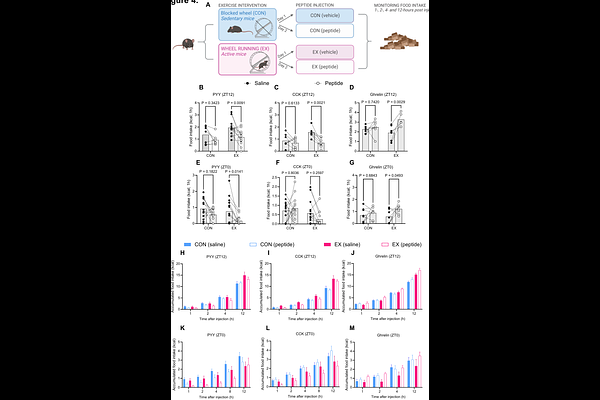Physical activity promotes gut adaptation, responses to nutrients, and sensitivity to gut peptides

Physical activity promotes gut adaptation, responses to nutrients, and sensitivity to gut peptides
Baech-Laursen, C.; Vergara Ucin, J.; Galsgaard, K. D.; Llana, J.; Kissow, H.; Holst, J. J.; Pedersen, B. K.; Sanchis, P.
AbstractPhysical activity is essential for body weight maintenance after body weight-loss, partly by promoting the coupling between energy intake and expenditure. However, the underlying mechanisms remain largely unknown. Here we demonstrate that running induces small intestine growth independently of GLP-2. In addition, exercise increases L-cell density in the small intestine and glucose-stimulated GLP-1 secretion, and improves the sensitivity both to the gut-derived hormones PYY, CCK and ghrelin, and to treatment with GLP-1 receptor agonist. Moreover, increased physical activity enhances satiation and satiety post-fasting, regulates the gene expression of appetite signals in the intestine, nodose ganglia and brainstem, and induces a greater feeding-response in the activation of hypothalamic and brainstem neurons. This improves overall appetite regulation, and in turn, promotes body weight maintenance. In summary, the present data suggest that increased physical activity improves body weight maintenance by inducing adaptations in the gut and in gut-to-brain communication that control appetite